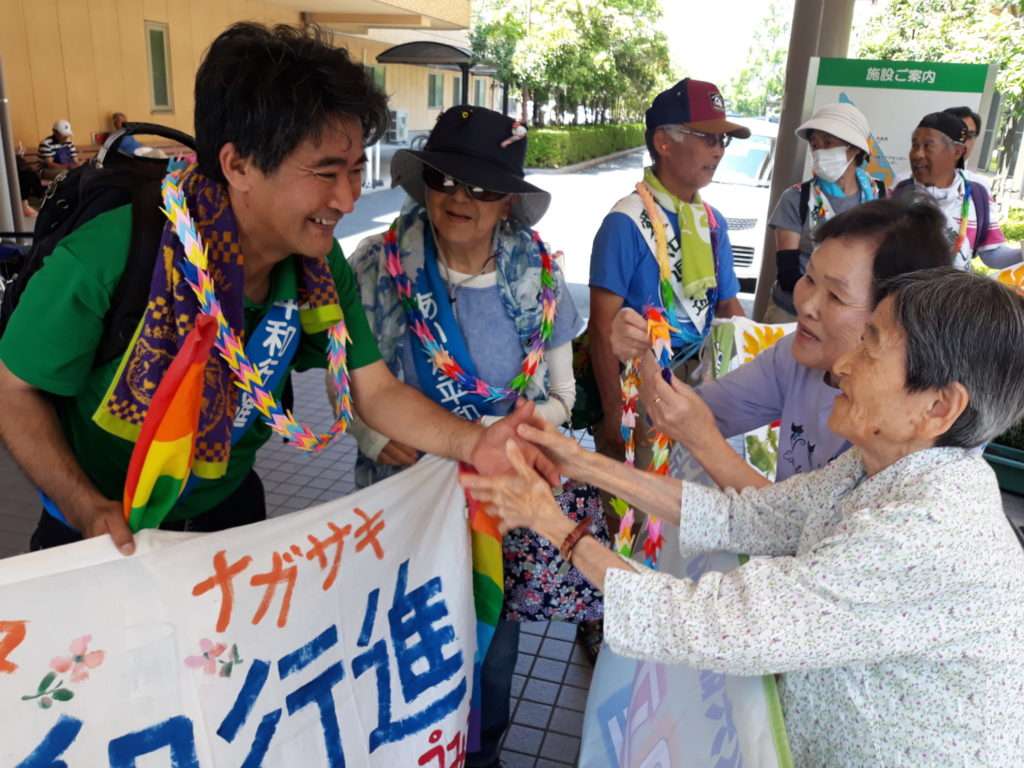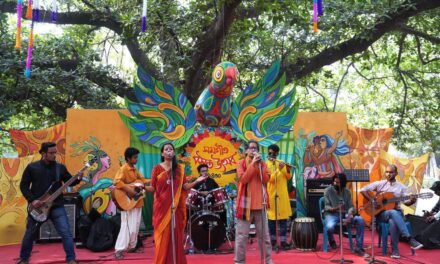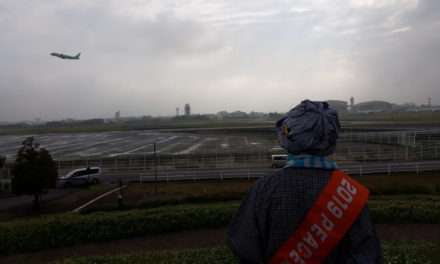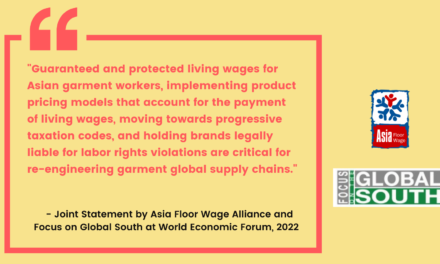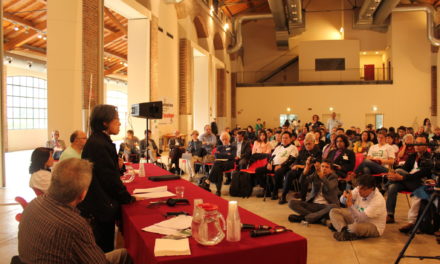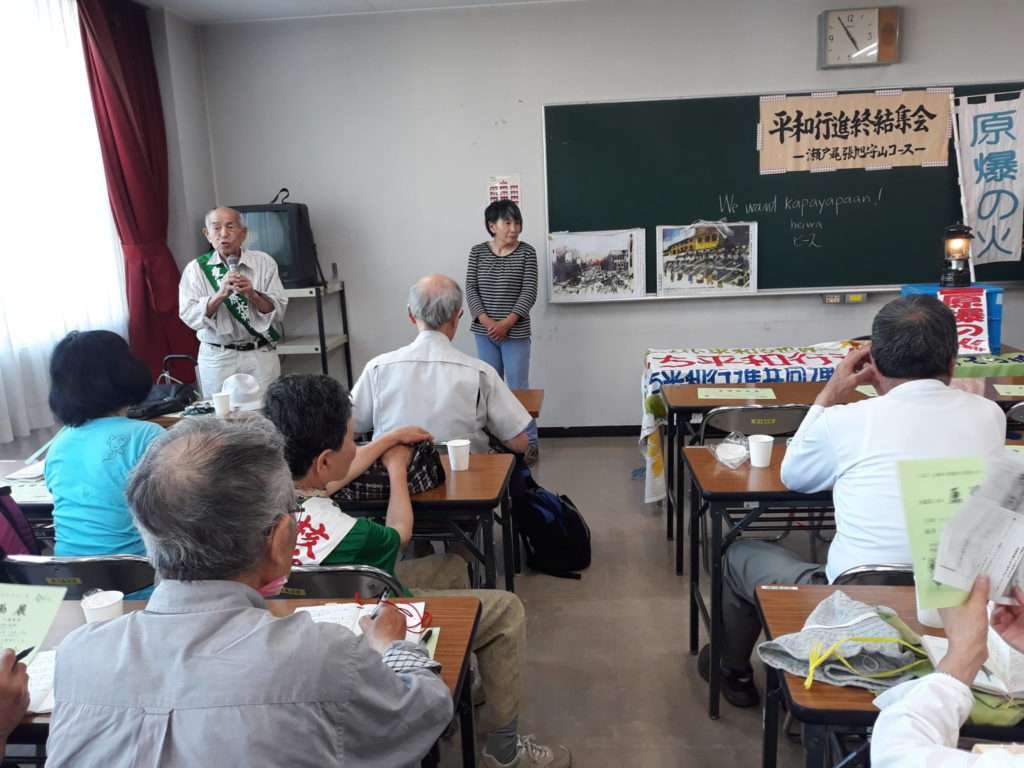
OUR LESSON FOR TODAY IS… Written on the blackboard: We want kapayapaan! / heiwa / ピース [peace written in katakana]
Text and Photos by Galileo de Guzman Castillo
We humans are social beings.
One of the best feelings in the world is being able to communicate one’s thoughts and emotions despite a language barrier. I thought: I have been learning Nihongo for the past week—why not teach Filipino to the Japanese people? And what better way to start with the word “kapayapaan” or ピース / heiwa (peace). They say the best way to learn a new language is to listen to songs in that language. And what better way to convey one’s solidarity message through a song!
I never thought I could and would sing “Kapayapaan” in front of many people (see photo below, inside the Moriyama Shogai Gakushu Center), considering my not-so-gifted voice. In the Philippines—owing perhaps to the generalization that all Filipinos are good at singing—there is a superstition that singing out of tune will invite the rain. And of course, we want aoi sora (blue skies) during the heiwa koshin (peace march) and not dark skies.
I really did not want to risk it, but with Run-san’s prodding and the clapping of hands of the Aichi peace marchers, I could not but indulge.
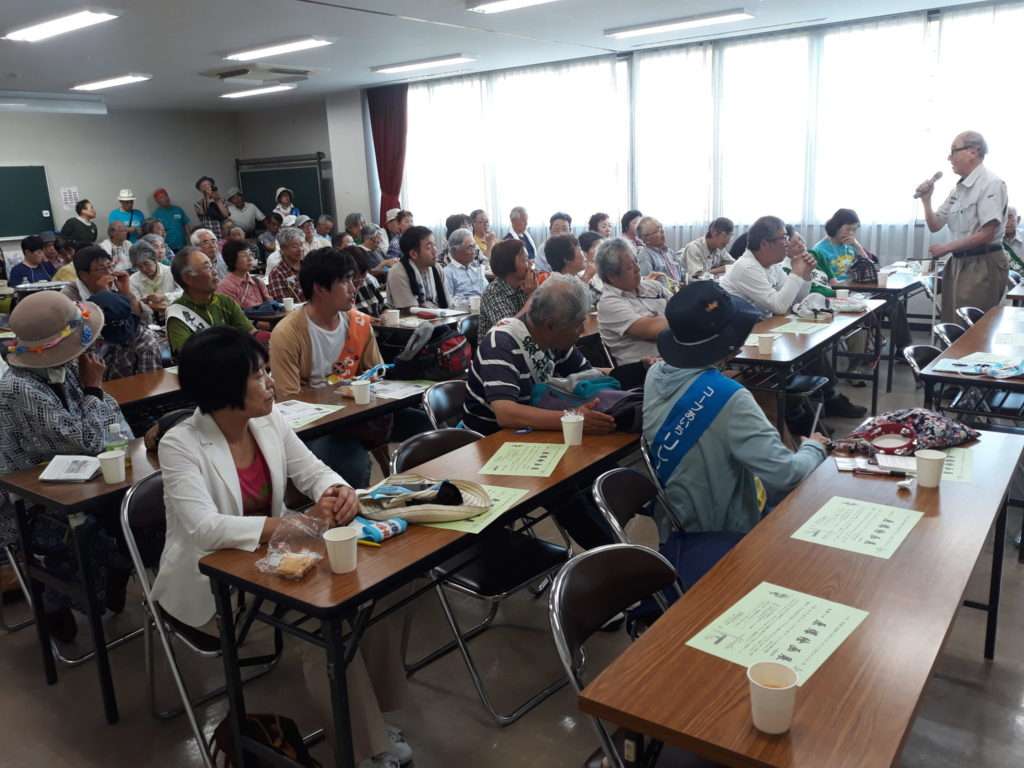
“Kapayapaan” is a song about peace and solidarity by the Filipino reggae band, Tropical Depression. It is usually sang as a community song by progressive movements in the Philippines. Just hearing the first line of the song will already make the people get up, clap their hands, dance together, and sing collectively.
The song goes like this:
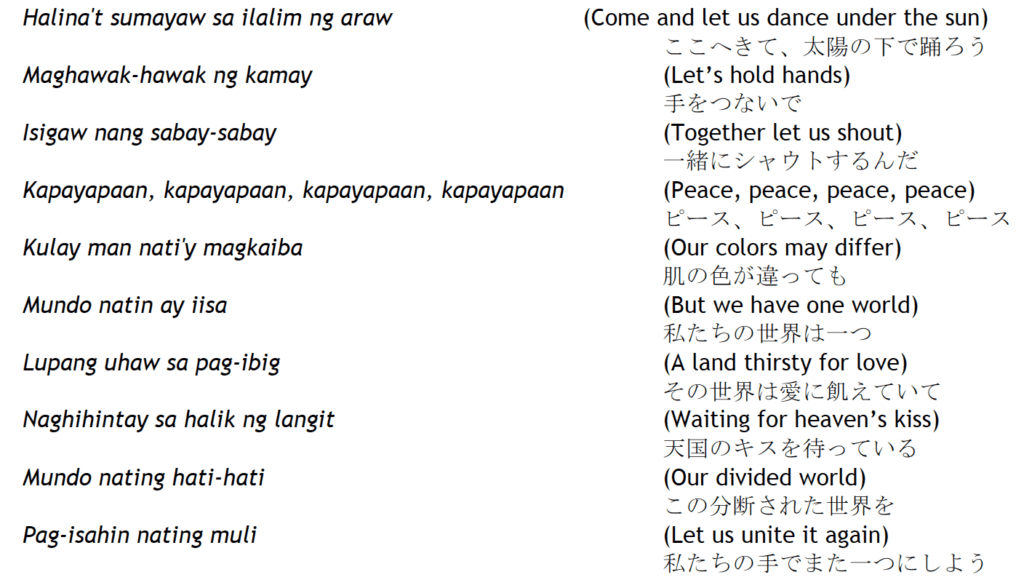
(As a postscript to this notes from the field, it did rain the following day. And the next day. And the next next day. I think the skies heard me.)
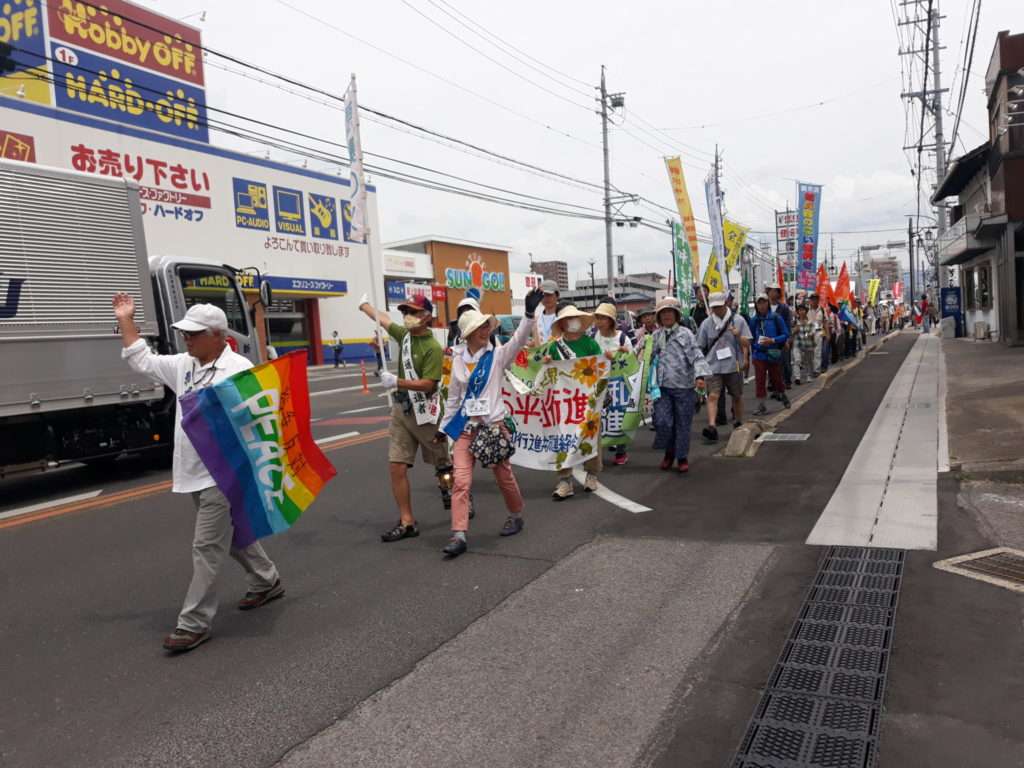
OUR COLORS MAY DIFFER, BUT WE HAVE ONE WORLD. A peace marcher holding a rainbow peace flag leads the march.
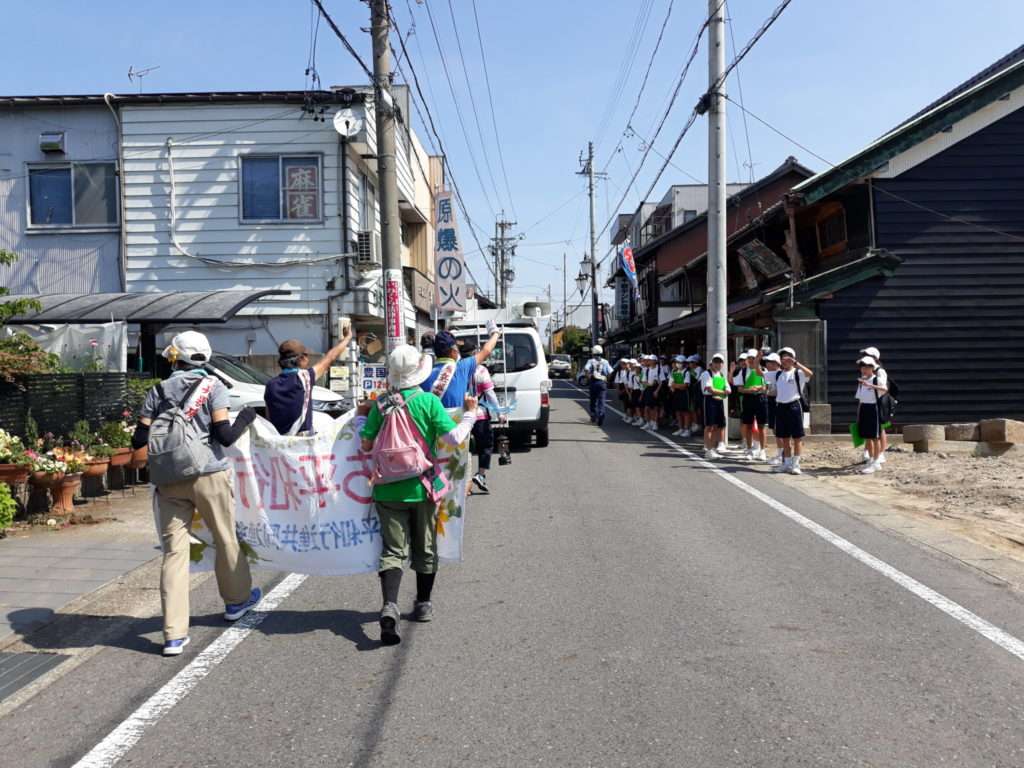
KNOWLEDGE AND WISDOM. Top: Aichi Heiwa Koshin meet young Japanese elementary students as they march to Konan City; Bottom: A peace marcher receives an orizuru (paper crane) garland from the older people in Chiaki Hospital.
